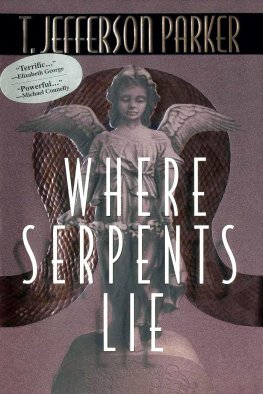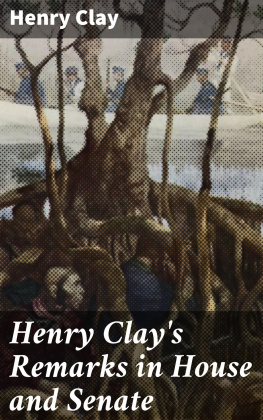T. Jefferson Parker
The Room of White Fire
In memory of Roberta and Jack Sharer
Once upon a time they would have named it Pines Asylum or Mountain View Sanitorium or even Lifespring Hospital, but now it was just Arcadia. It was hidden in the mountains of San Diego County, near Palomar Observatory. A patient had left the grounds and Id been offered the job of finding him.
The last five miles of road wound through trees that broke the late-morning light. Slats of sun and green. A guard at the gatehouse took my drivers license, checked my name against his appointment list, entered something on a tablet and seemed to ponder it. He handed the license back, eyes steady behind yellow glasses. Dr. Hulet will meet you in the lobby. Surrender all weapons and cell phones to security.
I nodded.
Welcome to Arcadia, Mr. Ford.
Another steep half mile up the road stood the main building, a beveled structure of concrete and smoked glass cut into the mountainside. An expanse of lawn, parking places, groomed walkways. Flower beds waving with Iceland poppies. And seating areas, some made of carved and varnished tree stumps, where men and women of various ages talked and drank from colorful plastic tumblers. Most wore casual or business clothes, with others both male and female in white work pants and tucked-in white shirts. A few of them watched me as I got out and turned off my phone and set it inside the large tool chest bolted to my truck. Placed the phone next to my sidearm, then closed and locked the heavy lid. A white-haired man in a sport coat and bow tie gave me a thumbs-up. The April day smelled of pines.
My cursory Internet search of Arcadia hospital buried deep down in the search engine listings had revealed a state accreditation link, a few breezy mentions in blogs and social media, and a one-page website that declared it to be an exclusive wellness community for treatment of mental and emotional disorders. The only website graphic was a watercolor of a Grecian temple on a hillside surrounded by trees. No physical address, no photographs, no additional information. A phone number and an email address and that was all.
The lobby was cool and filled with natural light steeping through the glass. Modern Scandinavian style, beige leather and chrome. Wall-mounted screens showed Curious George on KPBS San Diego. A professional-looking woman caught my eye from beyond the security gate. I emptied my pockets and removed my belt and boots and watch before stepping through the scanner. Got my things back on as she came toward me, her hand out. Im Dr. Paige Hulet, she said. Sorry for the airport welcome.
The in-flight snacks must be something.
I can offer you coffee or water, Mr. Ford.
She looked about my age, thirty-eight. Medium height and weight, brown hair and eyes. Black pantsuit with a white collared blouse buttoned to the top. Hair up and firmly secured, a cool hand. We walked a short hallway to a door, where she swiped the ID card on her lanyard through the lock.
We stepped into a towering atrium. Six floors up was a glass ceiling, beyond which hovered blue sky. Zigzagging ramps linked the floors all around us. People were out and about, going up and going down. We have elevators, or the ramps.
Ramps, please. I see you let the patients dress as they like.
We call them partners, but yes. We encourage them to express themselves through dress and grooming. Most do. This way.
As we climbed I saw that the room doors and windows faced the open atrium, as in a hotel. The doors were painted in repeating red, yellow, and blue. No curtains or blinds. Two patients and two staffers passed us on the left, heading down the ramp, all talking loudly about a new San Diego Chargers running back. One of the patients wore a Chargers jersey and helmet. The other wore a San Diego Padres baseball cap and jersey #51, no less that of the great pitcher Trevor Hoffman. I tried to think of them as partners rather than as patients. In this American hour words meant everything and nothing.
Sixty beds, said Dr. Hulet. Men on floors two and three. Females, four and five.
Is it unusual to mix male and female partners?
In a private community like this, no, said the doctor. And we have almost a one-to-two staff-to-partner ratio, so its never a problem. One of our pillars of treatment is to create an environment that signifies normal. Dr. Briggs Spencer is our founder. Hes a bit of a renegade, as you probably know.
I didnt realize this hospital is one of his.
Dr. Hulet gave me a Now you know look. He keeps a very low profile. For the families. Our end mission here is discharge and reintegration, when possible. We try to prepare our patients for life on the outside.
You used the wrong P-word.
I do it all the time.
Through a fourth-floor wall of smoked glass I looked down at the flank of the mountain and the winding road that Id driven in on, and the heavy blanket of oaks and manzanita and conifers. Boulders the size of cars, tan and rounded, some stacked, some strewn. Directly below us I saw a kidney-shaped swimming pool, blue and shimmering, with a few swimmers and waders overseen by white-clad attendants.
The patient in question had left the premises two days ago, as Dr. Hulet had told me the previous evening by phone. When someone escapes from a place like Arcadia, the hospital will rarely call law enforcement. Too many potential embarrassments and liabilities. Mental illness still brings fear and shame, especially to the rich and powerful. Police draw media, which draw the public. So a missing patient is the responsibility of either hospital security which had failed to find the man or a private locator, such as myself. Looking down on the dense forest surrounding Arcadia I saw that our AWOL patient could easily be hunkered within a mile of the building and it might take a bloodhound to find him.
Dr. Hulets office was a corner with floor-to-ceiling windows. Waiting for us was Alec DeMaris, a wedge of muscle in an expensive suit, who introduced himself as Arcadias director of security. Hair short and curly, face set. His handshake was intended to punish so I punished back. Men. We sat across from Dr. Hulet, who rested her elbows on the green-marble desktop, working a never-sharpened yellow pencil with both hands. She pointed the eraser end at Alec.
His name is Clay Hickman and hes twenty-eight years old, said Alec. He was a notch older than me and his voice was sharp, martial. Missing at the lunchtime head count two days ago, Monday. We searched the compound and grounds and found where hed dug out under the security fence. Rough country out there. I hired a bloodhound handler from Ramona. We got some clothes from Hickmans hamper and the dog took off down a dirt road on the other side of the fence. Then the dog turned around and brought us back to the escape hole and went yapping up the road the other way. So we figured our boy had gotten into a vehicle. The road is public but unmaintained and not used much. Tried the dog at the three nearest gas stations down-mountain, the Amtrak stations from San Diego to Oceanside, the Greyhound station in San Diego. No scent. Nada. That went into Tuesday afternoon. The handler wanted to try a different dog but I fired him and we called you. Why you, Mr. Ford? Youve only got five years of experience as a PI and a rocky history with the San Diego Sheriffs. But I can tell you why you because of your good reputation as a locator, and your service in Iraq as a United States Marine. Fallujah, I gather. I was a lieutenant during Operation Iron Harvest in Iraq, a little after your time. The taking-out-the-trash phase. So here we sit, brother.
They say once a Marine, always a Marine, brothers for life, always faithful. I say fine, but dont let it cloud your judgment.













